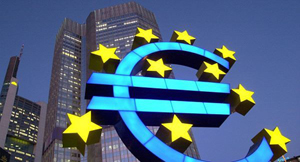"We have a problem with politics"
on
Interview: Susanne Nies of Eurelectric
"We have a problem with politics"
The goals the European Commission has set for Europe's energy transition and for the internal energy market cannot possibly be met with current policies. That is the stark message given out by Eurelectric, the European electricity industry association. Of the investments of about €1 trillion that are needed to ensure the energy transition, no more than half will occur, according to a Eurelectric survey among energy executives. Nor is the EU's ambition to complete the internal market by 2014 likely to be realised, the association adds. According to Susanne Nies, who is in charge of Energy Policy at Eurelectric, "overregulation" and "unpredictable policies" have wrecked the investment climate in the European electricity sector.
 |
| Susanne Nies: "Affordability is becoming a big problem. We hear this from all our members" |
Last year, Eurelectric went through an exercise that involved two high-level meetings with representatives from the industry and the financial sector to find out the state of the investment climate in the European power sector. The results, say Nies, were striking. "We knew from our own members that the situation was bad. But talking to banks and investors made us realise that they have no confidence at all in the European energy market. That surprised even us. After all, investors are looking to get away from government bonds at the moment, so you would expect them to be interested in the power sector. But they find it much too uncertain, and this applies to conventional power as much as to renewables. In fact, some banks have started to dismantle their energy desks in Europe and moved them to Latin American and Asia, especially in the power sector."
The mood among European electricity producers has probably never been as sombre as today, says Nies. It feels it had been promised a liberalised internal EU market in which companies would be free to compete on equal terms, within a consistent regulatory framework that would encourage investments in low-carbon technologies. Instead, what it got, in its view, was unpredictable government interventions into the market and a patchwork of unreliable and often contradictory national support schemes for renewable energy.
As Allan Baker, Managing Director and Global Head of Power Advisory & Project Finance at Société Générale, puts it in the report Eurelectric published on the basis of last year's investigation ("Powering Investments: Challenges for the Liberalised Electricity Sector"): "Without regulatory and policy clarity in the sector, utilities, rating agencies and the financial community will take a very cautious view across the sector, and for financial institutions that can translate into very selective lending or actively avoiding the sector altogether".
Distortions
So what are the concrete problems faced by the industry? Broadly, there are two. Firstly, there are the many different national support schemes for renewables, which are crowding out investments in conventional generation, combined with the failure of the EU to make its Emission Trading Scheme (ETS) the main driver f
| "Talking to banks and investors made us realise that they have no confidence at all in the European energy market" |
As an example, she mentions Portugal, which had a generous feed-in tariff for renewable energy, until the World Bank among others required the Portuguese government to stop it. "This devastated the renewable energy sector in Portugal", says Nies. "No one can afford these kinds of volatile policies."
Still, isn't it to be expected that subsidies get cut at a time of economic crisis? "That's not the point", says Nies. "As Eurelectric we believe that subsidies and other market distortions are never more than second - or even third or fourth - best. Ideally, the market should get it right. If you are going to have support schemes, then make them dynamic, temporary, and watch out for their secondary - distortive - impacts. But - once you promise subsidies, you can't go back on your promise. Otherwise you fatally undermine the confidence of investors. That is what we are seeing now."
Nies emphasizes that the problem is not confined to support schemes for renewables. In the UK, the government has announced it wants to provide subsidies (called Contracts-for-Difference) to nuclear power producers. The Czech Republic is considering a similar measure. "As an organisation pleading for a technology neutral approach Eurelectric has no preference for one particular power generating technology over the other. Indeed, if we highlight the distortive nature of support schemes, this applies to all schemes, including for nuclear."
Another example of government interference are the capacity remuneration schemes that are being set up all over Europe by national governments. Through these mechanisms governments are trying to ensure that there is backup capacity available when there is insufficient production from solar or wind power. But according to Eurelectric (and indeed the European Commission) these schemes introduce further market distortions and undermine the level playing field that is supposed to exist in Europe. Nies points out that the French government has set up a backup capacity scheme, while that country has very little renewable energy. "This shows that it's not only about renewable energy. The problem is the market is not functioning. That's leading to more regulation, while we should have the opposite."
Rationing
How, then, should climate targets be realised and renewable energy be developed according to Eurelectric? "We should have a strong Emission Trading Scheme. That should be the main instrument. In addition there might be a need for complementary measures. But let us put them into a European and a market-based framework rather than using 27 different schemes."
There is an alternative explanation, however, for investors' lack of enthusiasm for energy investments: as a result of the economic crisis and efficiency measures, demand has gone down. In this view, there simply is
| "The problem is the market is not functioning. That's leading to more regulation, while we should have the opposite" |
But Nies says things are not as simple as that. "Yes demand has dropped, and that can also be positive if it is the result of more efficient power generation. But flat demand does not mean there is no need for investment. If you look at it purely in terms of numbers, of expected supply and demand, there seems no need to invest in new capacity, that's true. But it's not about expanding capacity, it's about replacing capacity, changing it, making it more flexible. In 2016 a lot of old coal-fired capacity will be phased out as a result of the Large Combustion Plant Directive. How will that be replaced? By gas-fired power plants? But those are being shut down now. They won't be kept in the system. There is no business case to invest. If you have subsidized capacity on the one hand, how are you going to finance this?"
Nies notes that according to the European Commission's own figures, as well as according to the International Energy Agency (IEA), huge investments are needed across the European electricity sector: up to €1 trillion until 2020 and even €3 trillion to 2030. But, she says, there is no way these investments are going to materialise. "We conducted a survey among 45 energy leaders. 44 said these investments will not happen. On average they expected about half of the investments to take place."
"The fundamental problem", says Nies, "is that instead of letting the system evolve into a new equilibrium, policymakers are continually adding all kinds of distortions. This is leading to a bricolage with no method behind it. That's not sustainable." The industry, she says, is committed to a low-carbon transition. "But consistent policies are needed. Unfortunately, there is a real disconnect between the huge ambitions and the actual willingness to invest on the ground."
Lisbon Treaty
 |
| "It's not about expanding capacity, it's about replacing capacity, changing it, making it more flexible" |
Eurelectric's report includes a graph that shows the steady rise of the average household electricity bill in Germany from 2000-2011. "Energy companies are blamed for this", says Nies ,"but as we show, the rise is almost entirely due to taxes."
So what can be done? The Eurelectric report contains a number of recommendations, most of which are fairly obvious, such as the plea to policymakers "not to micro-manage the energy sector with multiple,
1) Union policy on energy "shall aim, in a spirit of solidarity between Member States, to
ensure the functioning of the energy market"; and
2) that "the measures necessary to achieve the objectives in paragraph 1 shall not affect a Member State's right to determine the conditions for exploiting its energy resources, its choice between different energy sources and the general structure of its energy supply".
Eurelectric, says Nies, would like to see a third point added requiring the coordination of European energy policies. "It is not the national energy mix as such which creates the problem, but the national policies for managing that mix which currently limit the potential of European energy policy."


Discussion (0 comments)